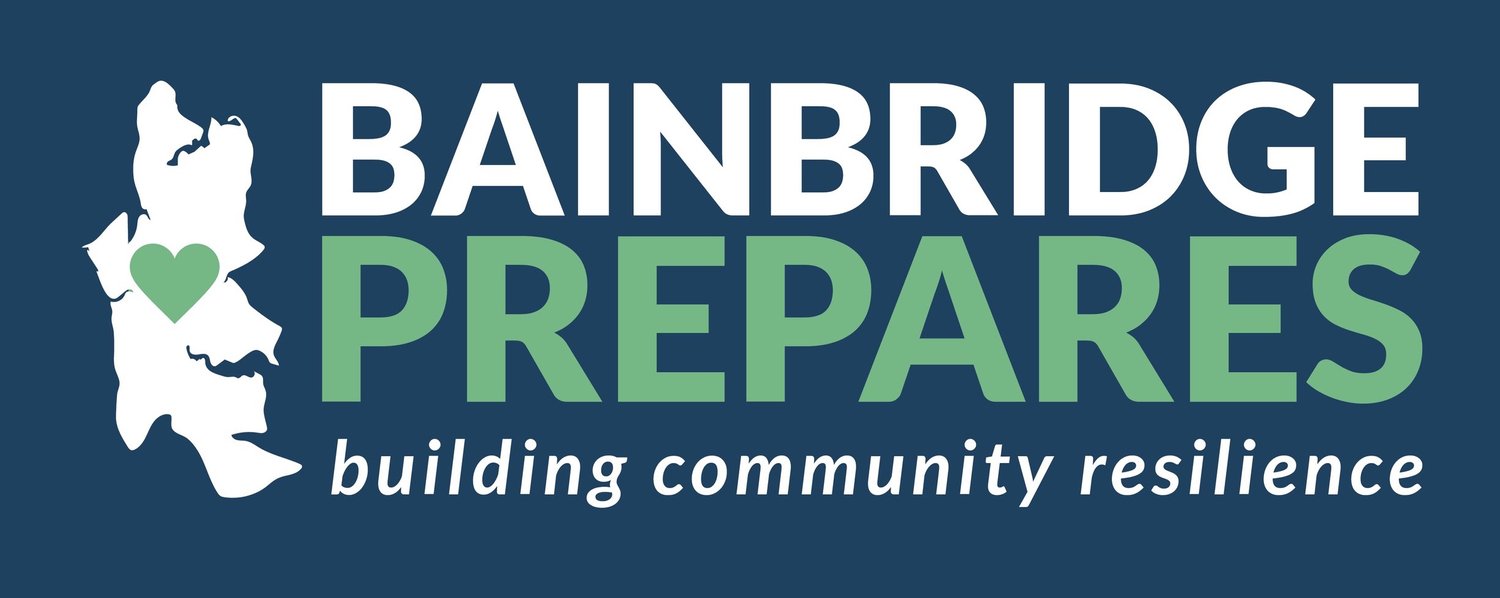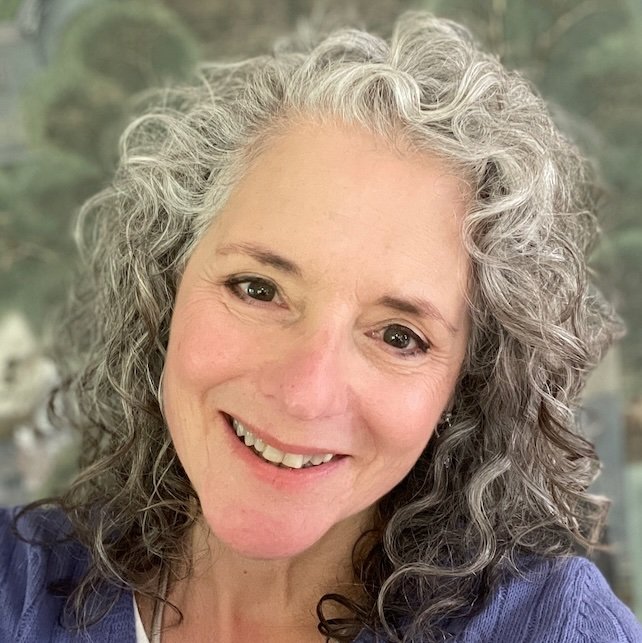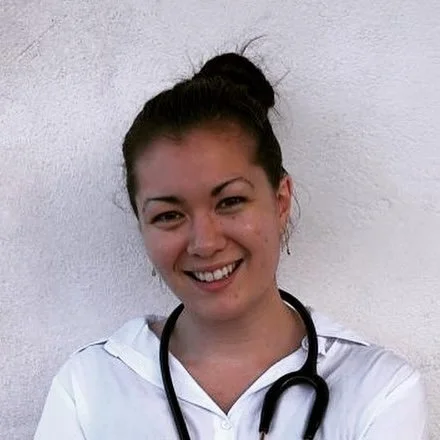Psychological First Aid
The Psychological First Aid (PFA) Team is a dedicated group of volunteers trained to provide mental health support in the wake of major disasters.
The team leads trainings throughout the year for citizens that show how we can all lend important emotional support to friends and neighbors in times of crisis.
Mission and Community Impact:
Our mission is to equip every volunteer with the necessary skills to respond efficiently and compassionally to individuals experiencing emotional distress during a disaster. By engaging with our community and offering vital mental health resources, we aim to cultivate resilience and facilitate recovery in the aftermath of any emergency. The PFA team not only makes a direct impact on affected individuals but also strengthens our community's overall ability to recover from crises.
About the Team
The PFA team comprises volunteers from various backgrounds, all of whom have completed the PFA Certificate Training. No medical background is required, and all members are encouraged to offer their support during potential emergencies at Bainbridge Island Hubs. To be deployed, emergency volunteers must register with the City of Bainbridge Island. Training and resources are provided through online courses and local trainings. Volunteers serve in 6-8-hour shifts during a disaster, providing essential emotional support and linking individuals with additional resources as needed.
The team is led by Linda Semlitz, MD. The team also includes Kelsey Lynch (our police department’s Community Health Navigator); Carol Pendleton; Alice Acker; Lauren Storck, PhD; Roger Midgett; Sean E Fitzgerald; and Donna L. Poole.
How to Get Certified in PFA
Take an introductory in-person class with Bainbridge Prepares OR complete an online PFA class:
Register as a volunteer with Bainbridge Prepares.
Inform Emergency Manager Anne LeSage (alesage@bainbridgewa.gov) about your certification, completion of IS 100 and IS 700, and volunteer registration.
Mental Health Emergencies
If you are experiencing a mental health emergency, please use one or more of these resources:
Call 911.
Call, text or chat 988 to access crisis mental health services in the US, available 24/7.
If you live in Kitsap County, call the Crisis Clinic at 888-910-0416, available 24/7.
If you live in King County, call the Crisis Clinic at 866-427-4747, available 24/7.
Text the Crisis Text Line, available 24/7; Text HOME to 741741.
Call Teen Link at 866-833-6546, available 6-10 pm daily.
Present to the nearest hospital emergency room.
Team Overview Video
Resources and Questions
-
The PFA team prepares for a major disaster by training its members in Psychological First Aid and maintaining up-to-date professional certifications. These preparations ensure that each volunteer is equipped to provide essential mental health support during emergencies.
-
During an activation, PFA Certified Volunteers respond to calls for deployment, after ensuring the safety of their families and neighbors. They serve at their assigned or nearest hub for a 6-8-hour shift, providing emotional support and assistance to individuals in need.
-
The PFA team is activated during emergencies or disasters that may cause significant emotional distress or mental health issues within the community.
-
If you are in need of support from the PFA team, please email the team leads at linda.semlitz@gmail.com or rmidgett@yahoo.com.
In case of a mental health emergency, please refer to our crisis resource list below. -
Anyone can become a PFA volunteer. The steps are:
1. Sign up as a volunteer with the City of Bainbridge Island.
2. Take a Introduction to PFA class scheduled throughout the year.
3. Become certified by taking an approved online PFA course:
A. Johns Hopkins offers a free Coursera Course on PFA.
B. The National Child Traumatic Stress Network also has a free online course on PFA.
PFA Basics
Listen, Protect, and Connect: Family to Family, Neighbor to Neighbor. A guide published by County of Los Angeles Public Health.
Listen, Protect, and Connect: Pyschological First Aid for Children and Parents. A guide from the University of California Los Angeles School of Public Health Center for Public Health and Disasters and Health and Media Research Group.
Psychological First Aid. Training from Johns Hopkins.
Psychological First Aid Team slide set.
Mental Health Resources
To find a therapist and other resources go to Bainbridge Island Psychotherapy Guild.
Download this Seattle Times guide to helping someone through a mental health crisis.
The Science of Well-Being is a course offered by Yale University through Coursera for free.
Medicaid covers certain mental health services. To find out if a particular service is covered, click here. In addition, tele-health services are provided. Coinsurance and deductibles apply, though some healthcare providers are reducing or waiving the amount you pay for telehealth visits.
Black Mental Health Resources is a page on the Mental Health Coalition website that lists resources that support Black mental health.
Check out The Ingredients of Resilience Handout.
Wired magazine has published an article listing three digital-based services to support mental health.
Get free counseling from a mental health professional at Helpline House. Phone: 206-842-7621. Address: 282 Knechtel Way NE, Bainbridge Island.
Also be sure to check out the Bainbridge Prepares Wellness Team page.
You Can Save a Life: Brief Suicide Rating Scale is a series of simple, plain-language questions from The Columbia Lighthouse Project that anyone can use to assess suicide risk.
Tips for First Responders were produced by the Center for Development and Disability and its partners to help first responders better assist people with unique needs (such as visually impaired people and people with autism) or in special situations (such as women who have newborns or people with service animals).
Emotional Health from the Red Cross.
Covid Resources
Check out 25 Tips for Coping with Quarantine.
COVID has been here for over a year and continues. Mental health issues related to the pandemic are especially hard for people with depression and other mental health disorders. The relapse and overdose rate has increased by 30 percent since March 2020. NAMI, the National Alliance on Mental Illness, has a 24-hour text helpline. Text NAMI 741741 or call between 9 am and 5 pm: 800-950-6264.
The COVID Coach app designed by the VA is a free tool for coping with stress, anxiety, and low mood during the pandemic.
Physician Support Line is a free national and confidential support line service made up of 600+ volunteers joined together in the determined hope to provide peer support for our physician colleagues as we navigate the COVID-19 pandemic. Access it here or call 1-888-409-0141.
Dr. Roby Marcou’s Facebook page offers a host of resources to help with COVID-19.
Watch the Explaining COVID video for kids.
The University of Michigan Psychiatry Department has published Helping Kids Cope with the COVID-19 Crisis, a web page with information and resource links.
The American Academy of Child and Adolescent Psychiatry has great resources for children and families regarding COVID-19 here.
In partnership with Zero to Thrive, the University of Michigan has also released an infographic about Helping Young Kids Through the Coronavirus (COVID-19) Crisis.
Dr. Annette LaGreca of the University of Miami and Scott Sevin of 7-Dippity have adapted their book about dealing with the aftermath of a hurricane to the new situation of a pandemic. Helping Children and Families Cope with the COVID-19 Pandemic includes worksheets/discussion guides for parents and children ages 6-12.
Study.com is offering a Mental Health Guide for High School Students, featuring a long list of actionable steps teens can take for mental health (such as exercise, diet, sleep, and sharing feelings); a variety of resources designed to help high school students tackle common mental health issues; and mental health strategies for dealing with the COVID-19 pandemic.
Supporting Your Kids
WOEBOT is a free self-care text-based app that assists with anxiety, stress, and depression using CBT techniques.
The Child Mind Institute offers a series of guides to help parents making decisions about a child’s mental health and/or learning disorders.
The American Academy of Child and Adolescent Therapy provides a guide to help parents know when to seek mental health services for a child.
The Coalition to Support Grieving Students offers a video that demonstrates how to talk with students who have recently experienced the death of someone close to them.
The Washington State Department of Health has released a Behavioral Health Toolbox for Families with resources for supporting teens and children during the pandemic.
KQED has posted an article about helping kids with suicidal ideation, React Calmly, Listen, Offer Hope: Help a Child at Risk of Suicide.
This article from The Seattle Times offers advice on how to talk to your child about their mental health.
The California Healthy Minds, Thriving Kids Project has created a series of free videos for parents, educators, and students. The videos are available in English and Spanish. The first set is about Understanding Feelings.
This handbook provides information on PFA for children: Listen, Protect, and Connect: Psychological First Aid for Children and Parents.
Viva, Food for the Hungry, Transform Aid International, World Relief, and Tearfund Ireland collaborated on an emergency toolkit for children in disasters that includes PFA information.
FEMA Region 8 has developed an online game for teens to foster effective decision making and increase resilience in the face of disaster: Disaster Mind.
Seattle Children’s Psychiatric Urgent Care is opening in the fall. The clinic, located at Seattle Children’s Magnuson Clinic, will provide in-person and virtual mental and behavioral health assessment and intervention for Washington youth (ages 4 to 17) in crisis who do not need emergency medical care.
Red Cross issued a PDF called Helping Children Cope with Disaster.




